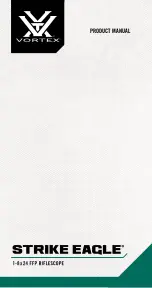
6
Magnification through any telescope has its limits. These limits are determined by the laws of optics and the nature of
the human eye. Most of your viewing will be done in the range of 35x to 120x. Higher powers are used mainly for
lunar and sometimes planetary observing where you can greatly enlarge the image and the atmospheric conditions are
near perfect. The images at extremely high powers magnify the image, but remember that the contrast will be very low
due to the high magnification. For the brightest images with the most contrast, start by using the lower power eyepiece
with a smaller image scale.
The following magnification levels can be achieved when using the standard eyepiece in conjunction with the 3x
Barlow lens:
Eyepiece Magnification
Mag. with 3x Barlow
Lens
20mm 35x
105x
4mm 175x
525x
T
T
E
E
L
L
E
E
S
S
C
C
O
O
P
P
E
E
M
M
A
A
I
I
N
N
T
T
E
E
N
N
A
A
N
N
C
C
E
E
With proper care, your telescope should rarely need any maintenance work. To maintain your telescope in the best
possible condition, observe the follow suggestions:
1. When your telescope isn’t in use, replace all lens covers to keep dust and contaminants off the optical surfaces.
2. A small amount of dust on any optical surface isn’t a problem and doesn’t need to be removed. If the dust builds
up, then use a can of compressed air and a camels hair brush to remove the dust. To remove fingerprints or other
contaminants, use an optical cleaning kit or the
Celestron
Lens Pen (#93575).
3. If the inside of the objective lens needs cleaning, it should be done by a professional. Either have your instrument
serviced by a telescope repair facility or return it to the factory for servicing.
C
C
o
o
l
l
l
l
i
i
m
m
a
a
t
t
i
i
o
o
n
n
Collimation or alignment of the optical system is done at the factory before shipment.
1. If your telescope has received very rough handling during transport or is dropped, it may need collimation.
To check if your telescope is in collimation the sketch below will help you. If you look into the eyepiece
adapter (without an eyepiece) at the top of the focuser, this is what you should see. If the reflection of your
eye is off center, then collimation is necessary.
Important!



























